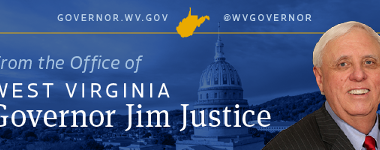Release from WVONGA and IOGAWV:
In 2018 alone, the industry spent more than $34 million.
“As an industry we use the roads in West Virginia and are cognizant that our operations – like other industries across the state – apply additional pressure to state roads,” said Anne Blankenship, executive director of the West Virginia Oil & Natural Gas Association (WVONGA). “We strive to be good neighbors and have contributed significantly to road repairs in the areas where we work, predominantly in the northern portions of the state.”
Charlie Burd, executive director of the Independent Oil & Gas Association of West Virginia (IOGAWV) said the millions of dollars in work often leave roads in better shape than before.
“From widening and paving the roads to ditching, replacing culverts and snow removal, we work hard to maintain – and in many cases, improve – the roads we use,” Burd said. “We also continue to find ways to decrease truck traffic and road use, such as by using pipelines to transport water and production fluids.”
As just one example, Williams, Chevron and TransCanada worked together to fix naturally occurring slips along Fork Ridge Road in Marshall County. The companies raised $6.5 million and facilitated the repair of the road. By funding these repairs, the state was able to address these slips much sooner than if the repairs were being funded by West Virginia taxpayers.
Additionally, this year, XTO Energy will spend more than $750,000 to significantly upgrade a bridge in Marion County.
Oil and natural gas companies are also required to post bonds to cover the cost of repairing any damage they may cause to secondary roads before any work on a production or pipeline site can begin. Bond amounts can be $100,000 per paved mile and $25,000 per gravel mile – amounts that far exceed bond requirements for other industries.
And, there is growing recognition of the industry’s commitment and efforts to maintain the roads they use.
“In my experience in my district, the gas companies did what they said they were going to do. They invested the money and did an excellent job,” Senator Bill Hamilton (R-Upshur County) said. “They put a good road back.”
Senator Randy Smith (R-Tucker County) agreed. “In the areas where the gas wells are located, the roads in Preston County are in better shape because the industry uses and maintains them,” he said.
The natural gas industry, Blankenship said, “takes its obligations seriously and the numbers cited here are just a drop in the bucket compared to total industry contributions to private road repair funding and state road fund contributions.”
For additional information, contact Anne Blankenship at (304) 343-1609 or Charlie Burd at (304) 344-9867





